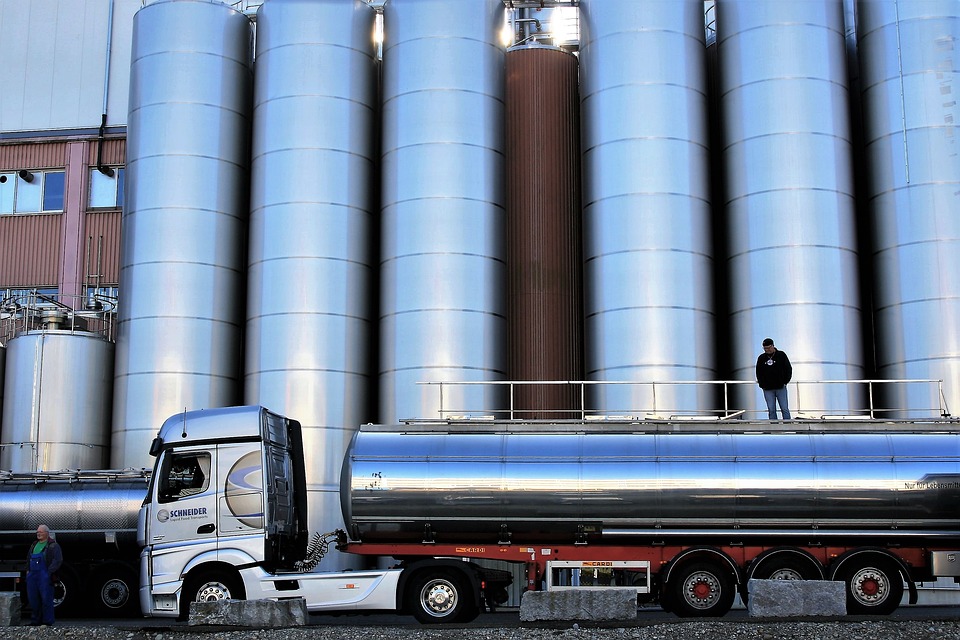
The detrimental impact of the EU Common Agricultural Policy (CAP) in developing countries has long been scrutinized by activists, political groups and developmental organizations. But professor Alan Matthews warns in this interview the CAP is no longer the main culprit when it comes to smallholder underdevelopment in Africa.
For years, the impact of the EU Common Agricultural Policy (CAP) on countries in the developing world has been harshly criticized. Environmental organizations, activist coalitions, political groups and farmers have repeatedly pointed out its frequent adverse impacts on food security and agricultural development outside Europe.
Stories about the dumping of European produce onto foreign markets, distortions resulting from export subsidies or cheap chicken meats and dairy crushing African farmers into rural poverty have for years made newspaper headlines regularly. Migrant workers from West-Africa are forced to pluck tomatoes in Italy – that are then shipped back to their home countries.
Albeit acknowledging the detrimental effects the CAP has had in the past, professor Alan Matthews of Trinity College Dublin says it’s time to let go of the notion that the CAP alone is to blame for African rural underdevelopment: ‘I am very critical of the CAP and the way EU-funds are spent through it. But at the present time the CAP, in a general sense, is not the major barrier for smallholder development in Africa. Its policies have been very distortive from a world trade point of view, yes. And the difficulties this created in developing nations have been substantial. But things have changed over the last couple of years. By focusing primarily on the perceived ills of the CAP, we are letting African governments off the hook for failing in their responsibilities.’
Small effects
As an global agricultural powerhouse, EU-farming policies create ripple effects around the world. In 2018, the European Parliament for the first time commissioned a report to research these ripples. A year later, Matthews co-authored another report about the external CAP-dimensions – this time requested by the European Committee of the Regions. Focusing on three case-studies, namely processed tomato exports, milk powder and poultry, the study concluded that CAP subsidies continue to have a production-stimulating effect –but that the magnitude of this effect at the aggregate level is relatively small: according to Matthews’ calculations, European production is no more than 6 percent higher than it might have been in the absence of CAP subsidies.
Read the 2019 report Evaluation of the impact of the current CAP on the agriculture of developing countries-developing-countries
The CAP since 2014 has become more compatible with international sustainable development goals, mainly by phasing out trade-distorting export subsidies and better aligning EU with world food prices. ‘My concern is that the continued emphasis on the CAP as a determining factor distorting world markets, creates distractions,’ Matthews explains. ‘It gives a misleading signal that if we were to change the CAP it’s going to make a huge difference concerning the potential for agricultural development in Africa. I don’t think that’s the case. If you’d eliminate the CAP in the morning, you’d still not eliminate the exports of, for example, fat filled milk powder to West-Africa.’
Milk powders
In total, the European Union accounts for around 35% of all whole milk powder (WMP) imported by vulnerable developing countries (VDC’s) – and nearly all full-fat milk powder. In recent years, a proposed boost in German dairy-exports has been heavily scrutinized for the potential economic damage it could do. For poultry, the EU nowadays accounts for almost half of all VDC-imports – leading UN-rapporteur Olivier de Schutter to suggest that such ongoing dumping of cheap EU-produce is undermining livelihoods of poor farmers. Matthews, however, underlines he couldn’t find any evidence that CAP subsidies are currently depressing the price of chicken meats in Africa, not in the least because the price of broiler meat in the EU is higher than that of other exporting countries, because of feed costs, higher environmental and animal welfare standards.
CAP & the Global South: National Strategic Plans – a Step Backwards?
In the case of milk powders, recent export growth has been mainly affected by the elimination of milk quotas and product innovation, Matthews concludes: ‘Twelve years ago, the damage EU milk powders were doing in the Western part Africa was indeed big. We were still using export subsidies back then, there was a milk price crisis in the EU and we were solving that at the expense of farmers in Africa.
The situation today is different. The only increase we could find was in the export of full-fat milk powder. That tells me that there is a specific explanation related to that product, not a generic one. Otherwise we would have seen dairy exports increase across the board. What we found was the increase in exports of full-fat milk powders was driven by a period of extra-ordinary high butter prices. For decades butterfat was in the doghouse because it was deemed unhealthy. But then suddenly nutritionists rehabilitated butter and prices shot through the roof. Cheaper vegetables oils particularly palm oil have since then been used in milk powders, which is why exports increased. That certainly can be a threat to local dairy industries. But it has nothing to do with CAP as such. If we want to find solutions, we should first focus on the right problem.’
Urban demand
Matthews is not opposed to engaging in the trade of agricultural goods with developing countries – as long as its done responsibly and on the right conditions. Seeing the rapid urbanization processes visible around the world it might even be necessary to provide cities in Africa with cheap milk powders or poultry from the EU. After all, at this point it is far from certain local producers from African countries can produce enough cheap protein sources to satisfy rising urban demand.
Matthews adds cautiously: ‘Milk markets in West-Africa do seem to be very segmented. So you see the milk powder largely sold in urban areas. That is, of course, to the benefit of urban consumers who get access to a cheap source of protein this way, whereas the cold chain from local rural areas is more limited. We need to invest in that, but building up local supply chains is difficult when your electricity is gone half the day. That brings me back to my original point. I get somewhat annoyed when I see African leaders quoting the work of development NGO’s blaming the CAP, for what is really their own failure to invest enough in their farming sectors.’
https://cor.europa.eu/en/engage/studies/Documents/CAP-developing-countries.pdf
More on CAP
CAP | Parliament’s Political Groups Make Moves as Committee System Breaks Down
CAP | Kloeckner Launches Direct Attack on GAEC 9, Eco-Schemes and Green Deal
ARC2020’s CAP Strategic Plans Project
How Transparent and Inclusive is the Design Process of the National CAP Strategic Plans?
Climate and environmentally ambitious CAP Strategic Plans: Based on what exactly?
CAP & the Global South: National Strategic Plans – a Step Backwards?
CAP and EU Green Deal
European Green Deal | Revving Up For CAP Reform, Or More Hot Air?
Civil Society and Scientific Criticism of CAP
Commission’s Dodgy Calculations Improve CAP’s Climate Impact
EU Subsidies Benefit Big Farms While Underfunding Greener and Poorer Plots – New Research
ENVI and CAP
CAP | Will Some Power be Wrestled away from Agri Committee this week?
Environment Committee Gains Right to Bring CAP Amendments to Plenary
CAP | Will Environment Committee Flex its New Found Muscles?
AGRI and CAP
Council and CAP
Auditors Criticism of CAP
CAP | Billions Spent on Biodiversity with Little Impact – Auditors
Auditors – Measures to Stabilise Farmer Incomes have ‘limited effect’
ARC Exclusive – Auditors Heavily Criticise Commission’s CAP Plans
CAP and Biodiversity | Wake-Up Call For Green Deal Commission?
CAP Extra




